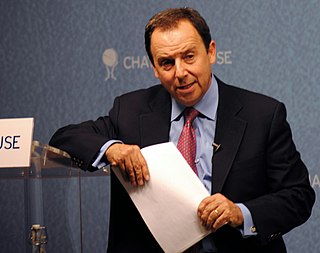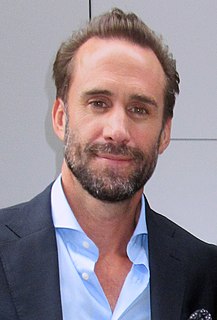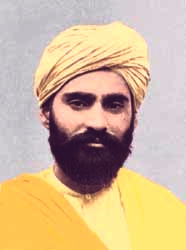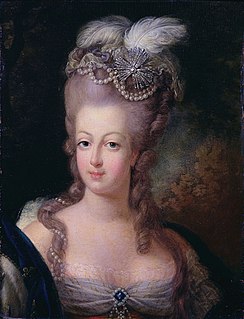A Quote by Ron Suskind
Summers was simply a master explainer, able to deftly boil down the complexities of economic and financial, and to put them in terms the non-expert could understand. He was brilliant at cultivating a sense of control, even as events spun far beyond what could be managed with any certainty. He could will into being the confidence that eluded others, those less self-assured and, maybe sensibly, on humbler terms with the world.
Related Quotes
Maybe that's the foundation of my book: how do we come to terms with the death of someone we love when it is impossible to come to terms with such a profound loss? The path I found where I could even ask that question, or maybe advance it beyond what I'd attempted in A Year and a Day, was by straddling the line: this is fiction and memoir, it is true and it isn't.
Financial institutions are not being bailed out as a favor to them or their stockholders. In fact, stockholders have come out worse off after some bailouts. The real point is to avoid a major contraction of credit that could cause major downturns in output and employment, ruining millions of people, far beyond the financial institutions involved. If it was just a question of the financial institutions themselves, they could be left to sink or swim. But it is not.
For being able to use language was a critical skill that could carry one far. One could use it professionally, as a crafter of everything from political speeches to modern novels. One could use it personally, as a tool of discovery or a means of staying connected to others. One could use it as an outlet that would feed the artistic spirit of the creator, which existed in everyone.
And with the Occupy Movement, it's really ironic how the police come as representatives and enforcers of the powers that be, even though the people in the Occupy Movement are really on their side - not in terms of their behavior, but in terms of their economic status, in terms of who the police are in society and how much they're paid, and if you boil it down to the economics of it, the police should be out there marching with the Occupy Movement.
I figured if I could put together being funny about stuff and actual events, maybe I could do something that wasn't being done much. Because the reporters that I met out there were funny, and they had hilarious stories that just didn't fit in the AP/UPI/New York Times foreign-correspondent style. They couldn't use the things they had. But I could.
We had a beautiful dream and that was all. The interest of my son is the only guide I have, and whatever happiness I could achieve by being free of this place I cannot consent to separate my self from him. I could not have any pleasure in the world if I abandoned my children. I do not even have any regrets.
I was interested first of all in trying to capture this myth that was always changing and to create some sort of a master story, some version of the myth that resonated with me, since I could have taken more or less any detail that I wanted or the opposite and try to put that down on the page in a way that I could express from that outset for myself and for our readers what it was that was so magical about [Buckminster] Fuller's way of putting together the world.
Facts, at any rate, could not be kept hidden. They could be tracked down by inquiry, they could be squeezed out of you by torture. But if the object was not to stay alive but to stay human, what difference did it ultimately make? They could not alter your feelings, for that matter you could not alter them yourself, even if you wanted to. They could lay bare in the utmost detail everything that you had done or said or thought; but the inner heart, whose workings were mysterious even to yourself, remained impregnable.
My view is that those challenges will be easier to meet, those risks will be less if we vote to leave because we will have control of the economic levers; we will have control over money we send to the European Union. We will have control over our own laws, and as a result, we will be able to deal with whatever the world throws at us.

































